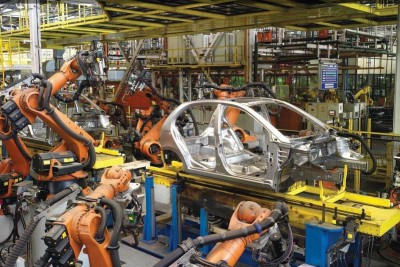
Mumbai, Easing supply side constraints of semiconductors as well as healthy demand led many passenger vehicle manufacturers to report healthy wholesales during last month.
Wholesale dispatches of passenger vehicles rose in March 2022.
Auto major Maruti Suzuki India on Friday reported a year-on-year rise in its total sales for March 2022 to 170,395 units from 167,014 units sold during the same period of the corresponding year.
The company's total sales in the month include domestic sales of 137,658 units, 'sales to other OEMs' of 6,241 units and its highest ever monthly exports of 26,496 units.
For FY22, the company posted a total sales of 1,652,653 units with a growth of 13.4 per cent over FY21.
"The shortage of electronic components had some impact on the production of vehicles in FY 2021-22. The Company took all possible measures to minimise the impact," Maruti Suzuki said in a statement.
"As the supply situation of electronic components continues to be unpredictable, it might have some impact on the production volume in FY 2022-23 as well."
Hyundai Motor India (HMIL) reported a growth of 6.1 per cent in its cumulative sales for FY22, which rose to 610,760 units from 575,877 units' off-take in 2020-21.
The company's FY22 domestic sales rose to 2.1 per cent to 481,500 units from 471,535 units sold during the corresponding period of last year.
Besides, FY22 exports rose 23.9 per cent to 129,260 units from 104,342 units shipped out during the last corresponding financial year.
Similarly, Tata Motors' reported a robust performance for its passenger and electric vehicles.
It reported the highest ever annual sales of its passenger and electric vehicles at 370,372 units in FY22, which was 67 per cent more than the off-take in FY21.
The company reported its highest ever quarterly sales of 123,051 units in Q4FY22, up 47 per cent over Q4FY21.
"Tata Motors set several new records in a challenging year, disrupted by two waves of Covid, semi-conductor crisis and steep increase in commodity prices," said Shailesh Chandra, Managing Director, Tata Motors Passenger Vehicles Ltd. and Tata Passenger Electric Mobility.
"We posted the highest ever annual, quarterly and monthly sales, supported by a strong demand for our New Forever range and agile actions taken on the supply side."
On an overall basis, including passenger and commercial vehicles, the company reported a growth of 30 per cent to 86,718 units sold in March 2022 from 66,462 units' off-take in 2021.
Mahindra & Mahindra's FY22 domestic passenger vehicles sales rose 65 per cent to 27,603 units from 16,700 units sold during FY21.
In the 'Utility Vehicles' segment, Mahindra sold 27,380 vehicles in March 2022.
The 'Passenger Vehicles' segment (which includes UVs, Cars and Vans) sold 27,603 vehicles in March 2022.
Exports for the month rose to 3,160 vehicles.
On an overall basis, the company's auto sales for the month of March 2022 stood at 54,643 vehicles.
"We continued our growth trajectory in March 2022 with over all sales of 54,643 vehicles, a growth of 35 per cent. Demand continues to be strong, even as we remain watchful of the global supply chain and take appropriate action, as required," said Veejay Nakra, Chief Executive Officer, Automotive Division, M&M.
Meanwhile, Kia India, reported a 18.44 per cent rise in sales during last month to 22,622 unit on a YoY basis.
"The brand remains strong in the list of 5 best-selling car brands in the country, with 7 per cent market share in the domestic PV market in March," the company said.
"Kia India concluded the FY21-22 with 186,787 unit sales despite the global supply chain disruption due to the semiconductor shortage. The brand registered a growth of 20 per cent YoY, which is much above the industry average."
Rohan Kanwar Gupta, Vice President & Sector Head - Corporate Ratings, ICRA, said: "Even as the production levels of OEMs are expected to remain impacted to an extent by a continuation of chip supply shortage for a major part of the current year, OEMs remain confident about a relatively stable production trend over the near to medium term."
"The ongoing crisis with regards to Russia and Ukraine could however impact semiconductor chip production, as Russia and Ukraine are both suppliers of raw materials used in semiconductor manufacturing, and remains a monitorable."
Shruti Saboo, Associate Director, India Ratings and Research, said: "In the PV segment, most of the OEMs reported a decline on a YoY basis in March 2022 as the industry continues to deal with semi-conductor chips shortages, though the UV segment performed better than passenger cars as OEMs have been prioritising the production of former against the latter."


.jpeg)

